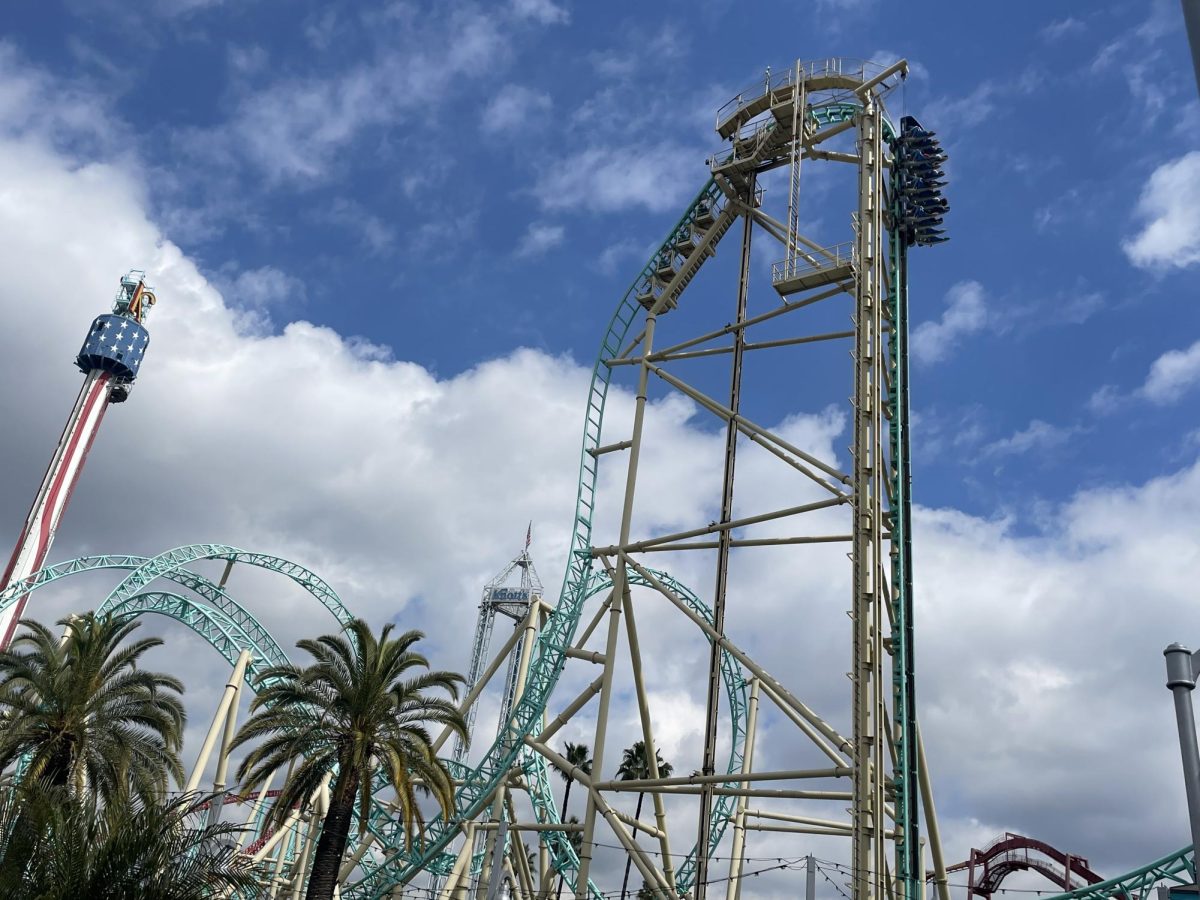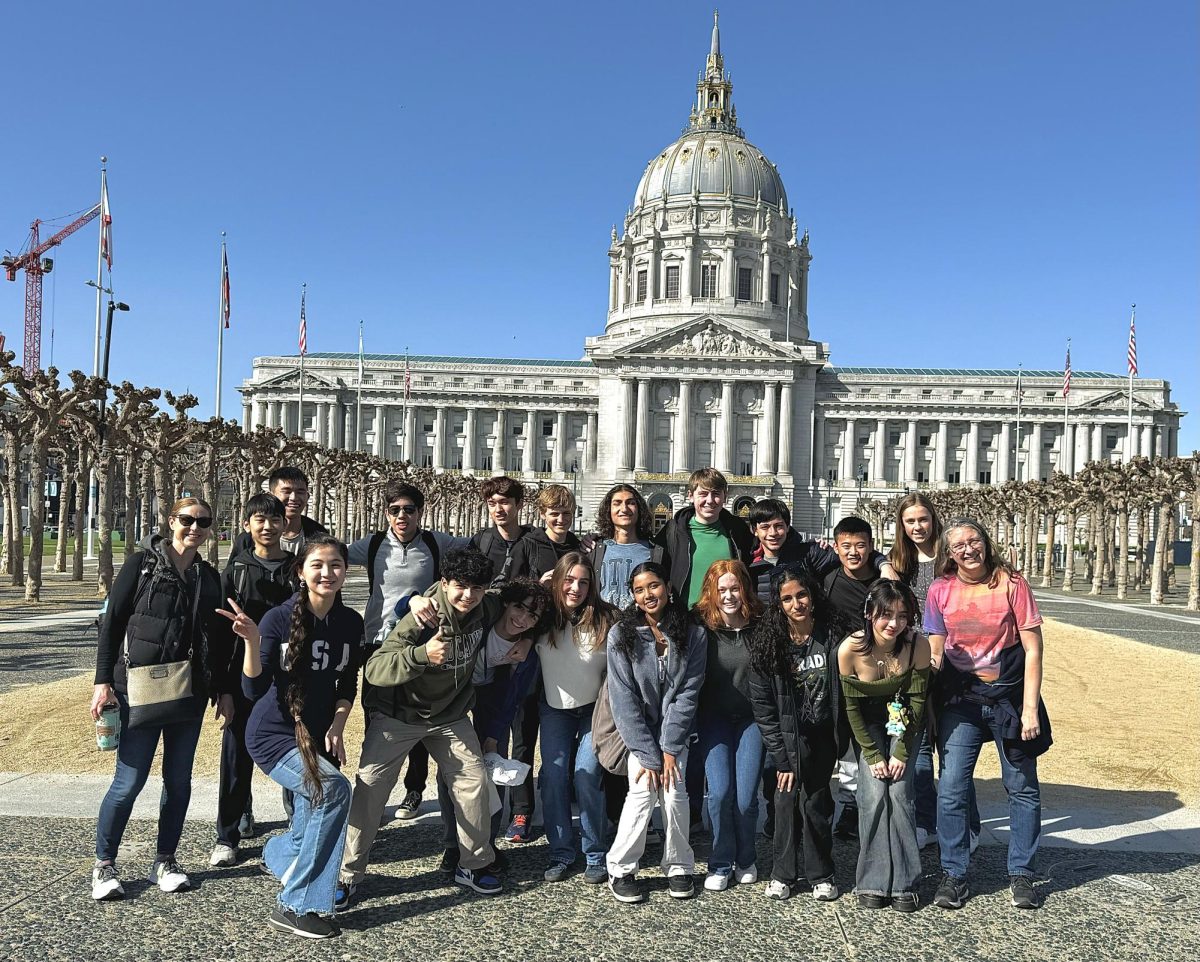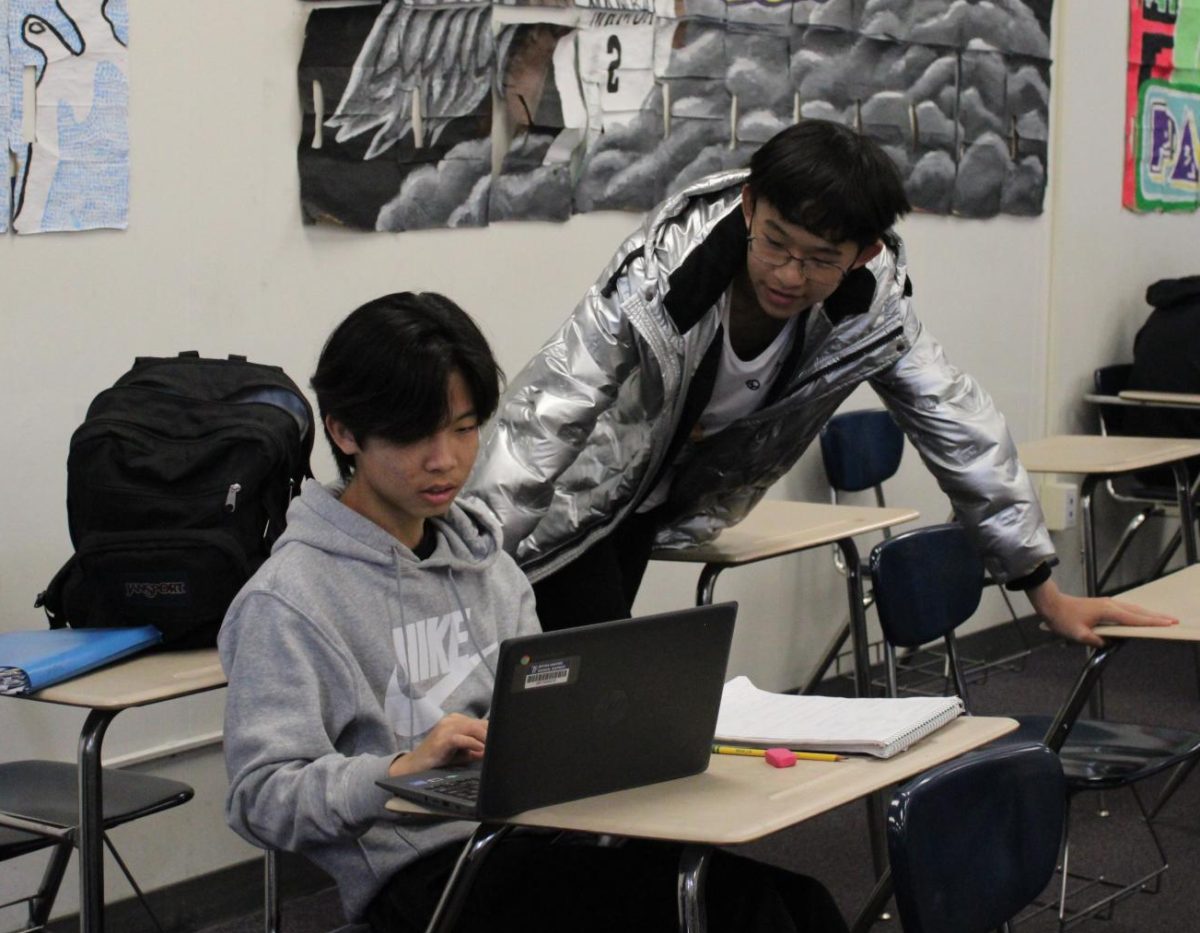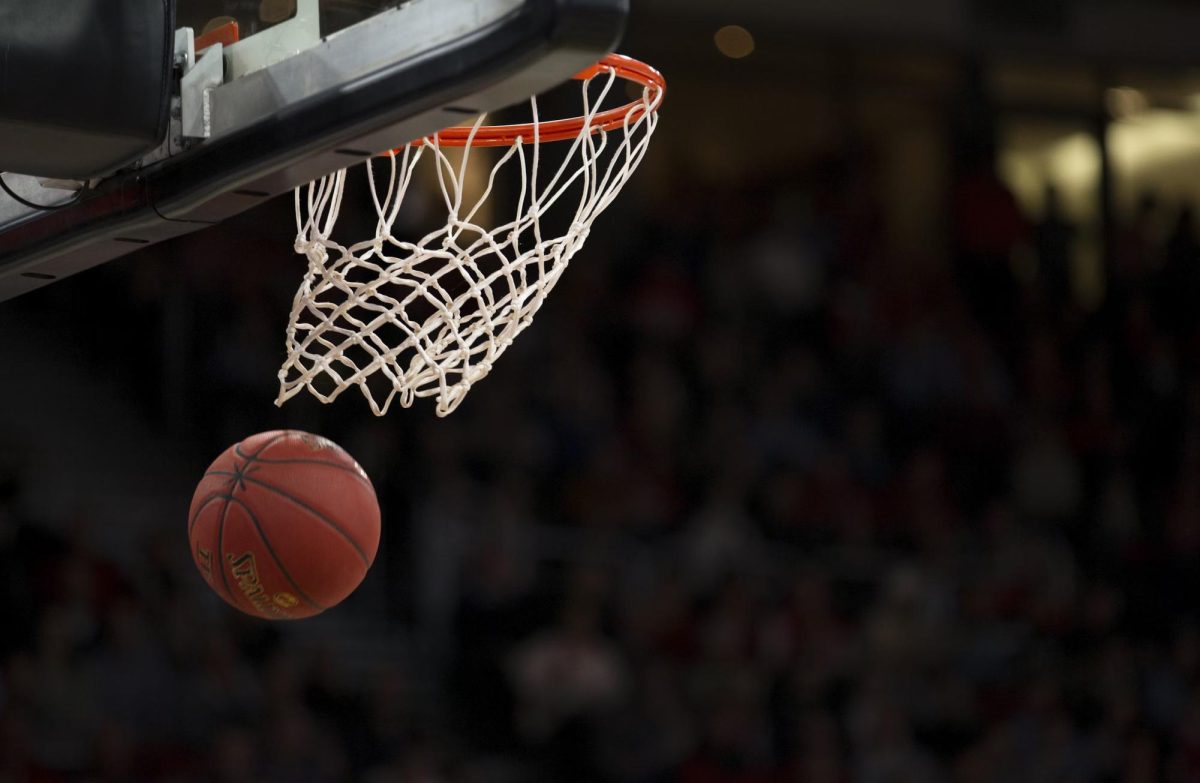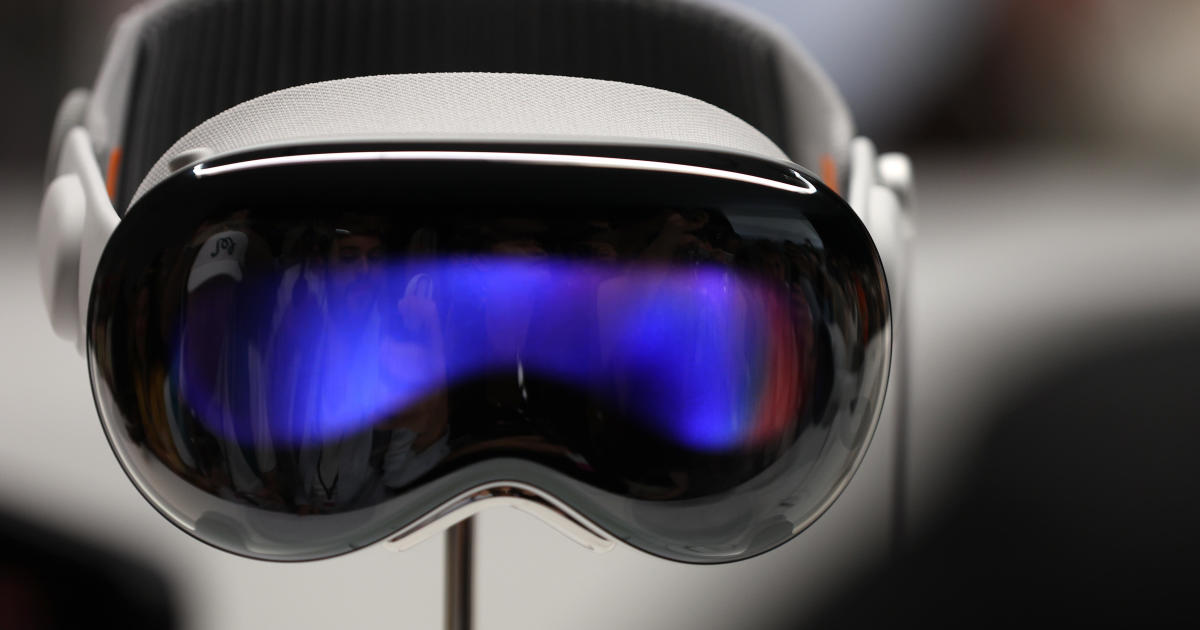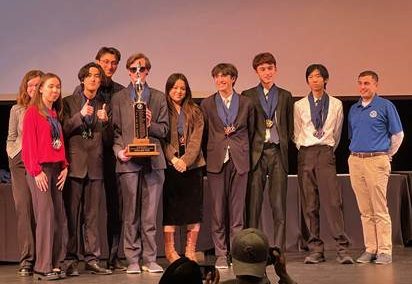
Evelyn Chang (2011), currently a junior studying chemical engineering at Stanford University, graduated from University High School (UHS) in 2011.
Sword & Shield: Did a particular teacher or course you took at UHS influence your decision to choose your major as chemical engineering?
Evelyn Chang: I think it was not so much influence me into choosing this major but rather help me confirm that chemical engineering was for me. There were two teachers – Ms. Bunch and Mr. Knight (and hence, AP Chemistry and AP Biology respectively). Ms. Bunch made a really technical class fun–a task that very few teachers can pull off. Mr. Knight changed my opinion about biology. I was never a huge fan of the subject, but Mr. Knight helped me realize that biology is such a wide field with limitless opportunities for research and study.
S&S: How do you think your college community is different than the community we have at UHS?
EC: The Stanford student community is so much less competitive and less antagonistic than the UHS student community. In high school, every student is competing to go to a good college, and naturally, friendships are strained because of this really unhealthy competition. I remember that many people were actually unwilling to help each other because they didn’t want their friends to get a higher grade than they did. At Stanford, everyone is 100% willing to collaborate on problem sets and study together for exams. The friends that I have at Stanford are so much more genuine than the friends I had at UHS. Conversely, the teacher-student bonds that you make at UHS are irreplaceable. In a college like Stanford, professors have so many students that they don’t really know everybody unless you make an effort to get to know them. The only professor that you end up being close to is your own major advisor or your research advisor.
S&S: How much of your involvement in extracurricular activities in UHS prepare you for college?
EC: I was actively involved in research in high school so that definitely helped with securing a research position here at Stanford. I was also part of many different academic clubs, which allowed me to have a better grasp of time management – a skill that will save your life (and your grade) in college. The classes at UHS gave me a very solid foundation for my college curriculum and made every class a lot easier to understand and do well in.
S&S: Which clubs were you a part of at UHS? Did you take part in a club related to the ones you joined at UHS in college as well?
EC: At UHS, I was part of Academic Decathlon, Mock Trial, Science Club and Spaceset (a international space settlement design competition team), and was president of the last three clubs. I’m a member of Stanford’s Mock Trial team, and I’m the head editor of the engineering section for the Stanford Undergraduate Research Journal. I’m also a member of the nation’s largest Asian American-interest sorority, alpha Kappa Delta Phi, and a member of the national chemistry fraternity, Alpha Chi Sigma.
S&S: Did any of your achievements in UHS and in college help motivate you or shape who you are as a person today? Is there any specific memory you would like to share?
EC: I was very, very academically driven in high school and that still applies to my college lifestyle. There really isn’t a specific incident that I can recall, but in general, every time I did well, I always felt really accomplished, and I guess that sense of accomplishment continues to motivate me to do well academically in college. Starting research early was probably one of the best decisions because it helped me practice thinking critically about the topics I learned in class–something that many people struggle with when then first get to college. Doing research in high school has also given me sufficient time and experience to seriously consider it as a career choice.
S&S: You mentioned that you were actively involved in research in high school and that it really helped you. Are there any research organizations you work for at the moment?
EC: I currently work in the Sattely Research Group at Stanford using metabolomics to study small molecules in plants which could have implications in biofuels and medicine. The past summer, I did research with the NSF Center for Biorenewable Chemicals (CBiRC), where I studied the development of biorenewable platform chemicals for industrial production.
S&S: What is advice you would want to give UHS students interested in studying chemical engineering?
EC: Work hard in chemistry, biology and calculus in high school. There is nothing more important than the fundamental basics. Chemical engineering is one of the hardest majors because it requires mastery of so many different subjects, so it is absolutely mandatory that you truly understand–and love–your math and sciences. The professors will not wait for you to catch up.
By NIUSHA MALEKI
Staff Writer



Sword & Shield
Menu
Alumni Interview: Evelyn Chang (Class of 2011)
November 22, 2013
Story continues below advertisement
Leave a Comment
Donate to Sword & Shield
$55
$1000
Contributed
Our Goal
Your donation will support the student journalists of University High School. Your contribution will allow us to purchase equipment and cover our annual website hosting costs.
The Official News Publication of University High School in Irvine, California


